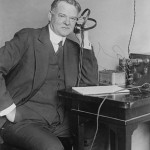 An individual is involved in a civil lawsuit against someone — a tort suit, an employment discrimination suit, a civil rights suit — and the opposing party requests production of everything in his or her Facebook account during discovery. The individual refuses, or produces some material but not others, and the requesting party moves to compel. How should the court respond?
An individual is involved in a civil lawsuit against someone — a tort suit, an employment discrimination suit, a civil rights suit — and the opposing party requests production of everything in his or her Facebook account during discovery. The individual refuses, or produces some material but not others, and the requesting party moves to compel. How should the court respond?
This situation is coming up increasingly frequently, and it appears to be confounding in many cases for everyone involved — judges, attorneys, and the parties themselves. Many individual litigants are no doubt surprised by such requests; not being familiar with the ordinary rules of discovery, they may not have realized that suing someone, or being sued, means that all relevant documents must be turned over — which might include every half-witted Facebook post or photograph pertaining to some issue germane to the lawsuit (such as, e.g., the plaintiff’s emotional well-being). Businesses have lived for years with the knowledge that a single wayward email from the CEO can sink a lawsuit; now individuals are experiencing the litigation effects when every decision or even fleeting thought is permanently recorded and archived. And destroying relevant material after the prospect of litigation becomes clear just makes matters worse.
But individual parties are not the only ones surprised by the interaction between civil discovery rules and social networking materials. Judges and attorneys often seem not to know exactly how to categorize the materials on a site like Facebook: is it all one relevant document? Multiple documents? How should the material be produced? Can the material be sought directly from the site via subpoena? Is the material shielded from discovery in any way? This confusion has led in some instances to court orders I’ve criticized as requiring overly broad production of social networking materials, with parties unnecessarily compelled to turn over entire accounts or even, in some cases, passwords to those accounts so opposing counsel can peruse them at will.
By and large most of those cases have been state cases, but federal courts are starting to issue opinions on social networking discovery as well. Over at Eric Goldman’s Technology & Marketing Law Blog, Venkat Balasubramani points to a recent decision from a magistrate judge in the District of Nevada, Thompson v. Autoliv ASP, Inc., No. 09-cv-01375, 2012 U.S. Dist. LEXIS 85143 (D. Nev. June 20, 2012). In Thompson, the judge ordered production of 5 years’ worth of Facebook and MySpace posts, photographs, and other materials to opposing counsel for its review. On a quick read Thompson might appear to fit into the category of overbroad decisions, but, despite an insufficient number of caveats in the opinion for my taste, I don’t believe it is.
I want to spend this post detailing exactly what’s wrong with an order compelling production of an entire social networking account, and why I think courts issuing such orders are going off the rails.
 Along with my colleagues Dan Blinka, Dean Strang, and Gordon Hylton, I’ve been organizing a conference at Marquette Law School on the Wickersham Commission, America’s first national crime commission. Appointed by President Hoover (left) and including many legal luminaries of the day, the Wickersham Commission produced an extraordinary series of reports in 1931 that examined in great detail the causes of crime and the operation of the American criminal-justice system. Perhaps best remembered for the critical light it cast on extreme police interrogation tactics, the Commission’s work might also be thought of as the coming-of-age of American criminology, as a progenitor of the contemporary “evidence-based decision making” movement, and as a centerpiece of the first presidential effort to craft a comprehensive federal crime-control policy.
Along with my colleagues Dan Blinka, Dean Strang, and Gordon Hylton, I’ve been organizing a conference at Marquette Law School on the Wickersham Commission, America’s first national crime commission. Appointed by President Hoover (left) and including many legal luminaries of the day, the Wickersham Commission produced an extraordinary series of reports in 1931 that examined in great detail the causes of crime and the operation of the American criminal-justice system. Perhaps best remembered for the critical light it cast on extreme police interrogation tactics, the Commission’s work might also be thought of as the coming-of-age of American criminology, as a progenitor of the contemporary “evidence-based decision making” movement, and as a centerpiece of the first presidential effort to craft a comprehensive federal crime-control policy.

 An individual is involved in a civil lawsuit against someone — a tort suit, an employment discrimination suit, a civil rights suit — and the opposing party requests production of everything in his or her Facebook account during discovery. The individual refuses, or produces some material but not others, and the requesting party moves to compel. How should the court respond?
An individual is involved in a civil lawsuit against someone — a tort suit, an employment discrimination suit, a civil rights suit — and the opposing party requests production of everything in his or her Facebook account during discovery. The individual refuses, or produces some material but not others, and the requesting party moves to compel. How should the court respond?